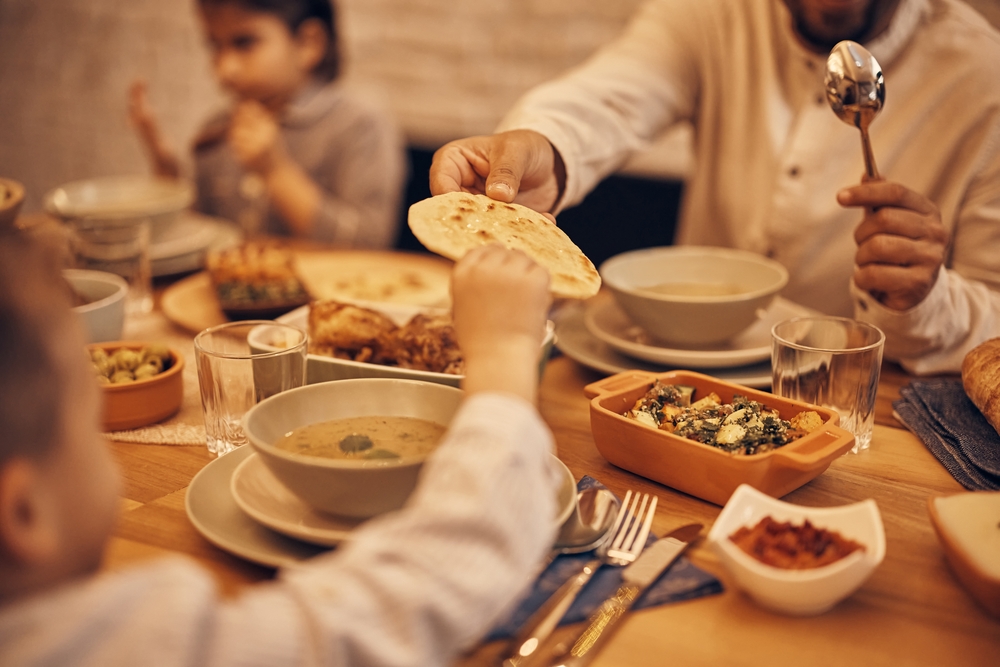What Are My Duties as the Eldest Son as I Don’t Have a Father?
Answered by Ustadha Shazia Ahmad
Question
I am the eldest son with no father; I have a mother and three younger siblings. What duty do I have in regard to telling them what to do and what not to do? My sister has a friend of the opposite gender whom she calls regularly and meets. My mum also goes to their house and sits with them with my younger siblings.
I do not mean any harm and not trying to expose their sins. I am just looking for some guidance on approaching this the right way, as I feel I have taken on the role of being the eldest now.
Answer
Thank you for your question. May Allah reward you for being concerned about your family’s spiritual welfare, and may you have ease and wisdom in guiding them.
A Shepherd of His Flock
‘Abdullah ibn’ Umar said that the Messenger of Allah (Allah bless him and give him peace) said: “Each of you is a shepherd, and each of you is responsible for his flock. The ruler who is in charge of the people is a shepherd and is responsible for his flock. A man is the shepherd of his family and is responsible for his flock. A woman is the shepherd of her husband’s household and is responsible for her flock. A servant is the shepherd of his master’s wealth and is responsible for his flock. Each of you is a shepherd and is responsible for his flock.” [Bukhari; Muslim]
The eldest son should play a larger role in being responsible for the family if the father is not there and should guide them however he can. Of course, the mother is responsible as well. If he does his best to teach them, commands the right, and forbids the wrong, he will be rewarded and is not ultimately responsible for their actions. If you can guide them gradually, with knowledge, wisdom, and gentleness, you are bound to have the best results.
Allah Most High said in the Quran, “(…) and no bearer of burdens shall bear the burden of another.” [Quran, 6:164] Also, consider the sons of Prophet Nuh and Prophet Lut (Allah bless them and give them peace).
Coercion
Follow this hadith and make it your goal in how you deal with your family: The Prophet (Allah bless him and give him peace) said, “Allah is Gentle and loves gentleness, and He grants reward for it that He does not grant for harshness.” [Ibn Majah]
Coercion usually doesn’t work. My advice is to bring more religion into your household by reviewing the life of the Prophet (Allah bless him and give him peace), teaching your mother and siblings what you know, attending lectures, going to the mosque, registering the family in classes and bringing more religious people into your social circle. I also urge you to bond with them, do fun things with them, take them out, and help them when they need it. If they see you as their helper, counselor, supporter, and friend, they will listen when you speak. I recommend that you employ the rulings of commanding the good and forbidding the evil only if the conditions are fulfilled. Please see them below:
- What Are the Criteria for Enjoining Good and Forbidding Evil?
- How to Counsel a Teenager with Religious Shortcomings?
- My Teenage Son Is Not a Good Muslim
May Allah give you the best of this world and the next.
[Ustadha] Shazia Ahmad
Checked and Approved by Shaykh Faraz Rabbani
Ustadha Shazia Ahmad lived in Damascus, Syria, for two years, where she studied aqidah, fiqh, tajweed, tafsir, and Arabic. She then attended the University of Texas at Austin and completed her Master’s in Arabic. Afterward, she moved to Amman, Jordan, where she studied fiqh, Arabic, and other sciences. She later moved back to Mississauga, Canada, where she lives with her family.
